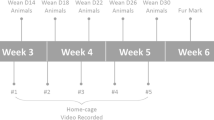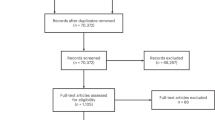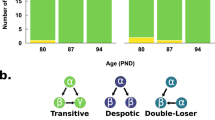Abstract
Many people who work in laboratory rodent breeding facilities believe that disrupting certain sensitive rodent lines will result in increased breeding failures and loss of newborn pups. To evaluate this hypothesis, the authors assessed the effect of cage-change frequency on the breeding performances of a mouse strain (C57BL/6NTac) and a rat stock (NTac:NIH-Whn) that were thought to be sensitive to disruption. As per recommendations in the Guide for the Care and Use of Laboratory Animals, personnel changed one half of the breeding cages weekly, regardless of the presence of newborn pups. The other breeding cages were also changed weekly, unless newborn pups were present, in which case the cages were not changed until the following week. The authors assessed breeding performance by calculating the production efficiency index (the total number of pups that survived to weaning divided by the total number of actively breeding females). Breeding performance did not differ significantly between rodents whose cages were changed weekly and those whose pups were not disturbed.
This is a preview of subscription content, access via your institution
Access options
Subscribe to this journal
We are sorry, but there is no personal subscription option available for your country.
Buy this article
- Purchase on Springer Link
- Instant access to full article PDF
Prices may be subject to local taxes which are calculated during checkout


Similar content being viewed by others
References
Balcombe, J.P., Barnard, N.D. & Sandusky, C. Laboratory routines cause animal stress. Contemp. Top. Lab. Anim. Sci. 43, 42–51 (2004).
Lane-Petter, W. Cannibalism in rats and mice. Proc. R. Soc. Med. 61, 1295–1296 (1968).
Burn, C.C. & Mason, G.J. Effect of cage-change frequency on laboratory rat reproduction, cannibalism, and welfare. Appl. Anim. Behav. Sci. 114, 235–247 (2008).
Institute of Laboratory Animal Resources. Guide for the Care and Use of Laboratory Animals (National Academies Press, Washington DC, 1996).
Porter, G. Pre-weaning loss of laboratory animals. Proc. R. Soc. Med. 61, 1295 (1968).
Svare, B. & Broida, J. Genotypic influences on infanticide in mice: Environmental, situational and experiential determinants. Physiol. Behav. 28, 171–175 (1982).
Acknowledgements
Many individuals from Taconic Farms Inc. worked hard to ensure the success of this project. We thank Kevin Behan, Fred Davis, Karen Hinkein, Denise Navins, Matt Spencer, Terry Receveur, Ginny Rosborough, Taconic's IACUC and numerous dedicated Animal Care Technicians and Supervisors for their hard work and dedication. We also thank Dr. Sam Boutin for providing the statistical analysis, editorial commentary and continued support.
Author information
Authors and Affiliations
Corresponding author
Ethics declarations
Competing interests
The authors declare no competing financial interests.
Rights and permissions
About this article
Cite this article
Sanderson, A., Multari, H., Lohmiller, J. et al. Effect of cage-change frequency on rodent breeding performance. Lab Anim 39, 177–182 (2010). https://doi.org/10.1038/laban0610-177
Received:
Accepted:
Issue Date:
DOI: https://doi.org/10.1038/laban0610-177



